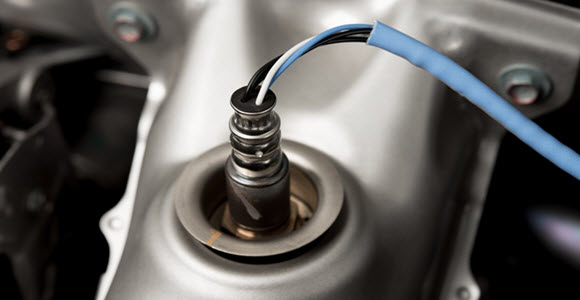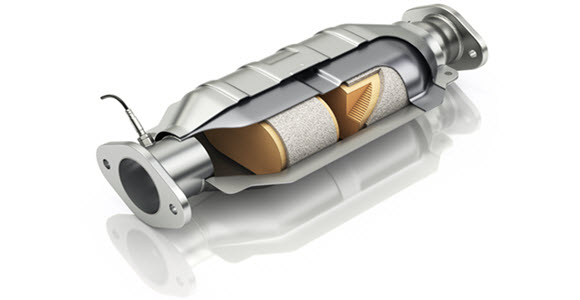How Do You Detect O2 Sensor Failure in Volkswagen
Posted on | 23 Jul 2018 By Anita Gaal
The Volkswagen has always been and will always be a reliable car. Whether you are driving a new or older model, that statement is still true. Keeping up with the proper maintenance and care for your Volkswagen will have it running to its fullest capability at all times.
However, with that being said, there may still come times when you feel as if your Volkswagen is trying to tell you something and that something is not good. This is definitely true when the O2 sensor starts to fail. Knowing what the O2 sensor is in your Volkswagen and the signs of failure will allow you to promptly bring it in to Euro Automotive for a proper repair.
What is the O2 Sensor?
The oxygen (O2) sensor is located in the exhaust system. The purpose of the O2 sensor is to measure the oxygen levels that are in the exhaust gases as they are leaving the engine. Once the O2 sensor has a read of the levels, it sends this information to the Powertrain Control Module. The Powertrain Control Module then is able to determine what the correct air to fuel ratio is best for the engine at its current state.
The O2 sensor is also in charge of keeping the fuel injector and engine timing working efficiently. When all these functions are working together as they should, the emissions will also be properly controlled. So if there is a failure in the O2 sensor then the engine performance will be affected as well as the emissions that are going out into the environment.
Signs of O2 Sensor Failure in Your Volkswagen
Knowing the signs of O2 sensor failure is beneficial both to you and your Volkswagen. You want to feel safe as you are driving and want your car to last as long as it can. These things are obtainable when you know the signs of O2 sensor failure and act on them immediately.
Check Engine Light Comes On
The check engine light is going to be the first indicator that you could be having O2 sensor failure. This is because the O2 sensor is directly related to the performance of the engine. If the O2 sensor is failing, that means that there could be an improper ratio of air and fuel going into the engine. Although there could be other reasons for the check engine light to come on, bringing your car in immediately once the light comes on can help prevent any further damage of any other part in the engine.
Reduced Gas Mileage
Due to the fact that the O2 sensor is related to the air to fuel ratio required for optimal engine performance, any failure in the sensor will throw this ratio off. A failure in the O2 sensor will also affect the fuel-delivery and the fuel-combustion systems. Both of these systems should be working properly in order for the gas mileage to be maintained at the level that you are used to.
You will be able to tell if your gas mileage is being affected in your Volkswagen is you find yourself making more and more trips to the gas station. Once you realize this, you might consider start keeping a log so you will know for sure that your gas mileage is being negatively affected.
Engine Misfires or Rough Idles
The O2 sensor is connected to the proper functioning of the engine. So if the sensor has failed, then the air to fuel ratio is no longer being controlled. The engine will then no longer be able to run in a capacity that is most efficient. You may notice that the engine is misfiring due to the fact that the O2 sensor is no longer able to help regulate the timing of the engine. The O2 sensor failure will also cause your engine to run very rough when the engine is idling.

Take Your Volkswagen to a Trusted Company
Euro Automotive is located in Dallas, TX and is easily accessible from the surrounding areas of Garland, Arlington, and Fort Worth. Euro Automotive has been in the car service and repair industry for over 18 years. We have properly trained and certified service technicians that will run a careful diagnostic that will reveal the exact issues your Volkswagen is experiencing. This information will always be properly communicated with you to ensure the trust is always in place. Once the O2 sensor failure is diagnosed, our technicians will provide quick, accurate repairs to keep you moving in your busy life.















